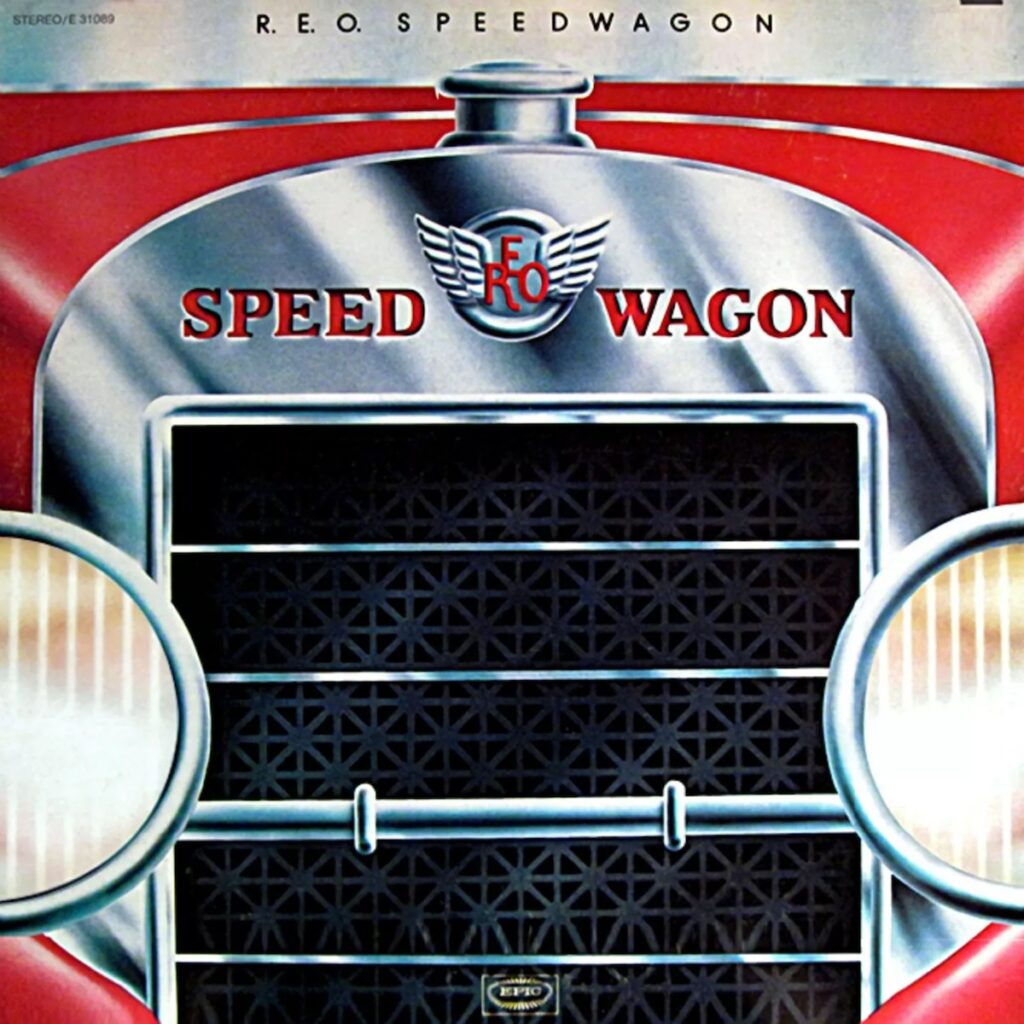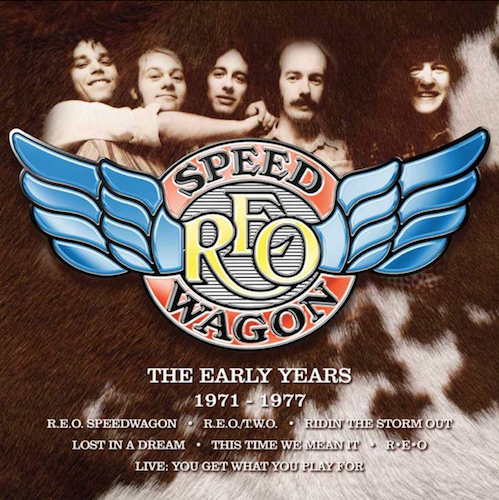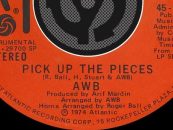 In December 2024, Kevin Cronin, the lead singer and chief guiding force of REO Speedwagon, confirmed that the band would officially cease touring as of New Year’s Day 2025. The 73-year-old singer of the band, which was founded in 1966 at the University of Illinois in Champaign, added that while the band name is now defunct, he will continue to tour with a band and perform REO songs.
In December 2024, Kevin Cronin, the lead singer and chief guiding force of REO Speedwagon, confirmed that the band would officially cease touring as of New Year’s Day 2025. The 73-year-old singer of the band, which was founded in 1966 at the University of Illinois in Champaign, added that while the band name is now defunct, he will continue to tour with a band and perform REO songs.
What’s missing in this statement is the fact that Cronin (who joined in 1972) was not the original singer for REO. That distinction goes to vocalist Terry Luttrell, who made his one and only contribution to REO for their self-titled debut album in 1971. Prior to this release, REO was in typical post-college “find your identity” mode. After procuring their name from a truck designed in 1915, the core group—keyboardist Neil Doughty, drummer Alan Gratzer, bassist Gregg Philbin and guitarist Gary Richrath—had been functioning with a revolving door of musicians, before settling on the lineup with Luttrell. With Irving Azoff as their manager, the group was signed to Epic Records in 1971.
“REO were the first band I signed after joining Epic,” veteran A&R exec Tom Werman told Best Classic Bands. “I flew out to Champaign, and was met by Irving, who took me to the Red Lion Inn that night, where the band blew the roof off. They rocked hard back then.”

After producer Paul Leka (the Lemon Pipers, Steam) saw them at an outdoor concert in Peoria, Illinois, he then brought them back to his Bridgeport, Connecticut, studio to begin work on their album, which would eventually clock in at a respectable, if short, 37 minutes.
The opener, “Gypsy Woman Passion,” benefits from its 100 mph start: both Richrath and Gratzer put their feet to the proverbial pedal and kick off a rollicking tune that slots in nicely with a style that was fairly common on FM radio at the time: a blend of peppy piano melodies dished out with an Allman Brothers/Lynyrd Skynyrd drive and maniacal stinging guitar shredding.
The album’s single, “157 Riverside Drive” (named after the home address the band stayed at during recording), is a sharp slice of boogie-woogie honky-tonk, courtesy of Doughty’s intro. Punctuated by Richrath guitar embellishments, Luttrell gives off a (perhaps) autobiographical tale of a female meetup at the above address. Not quite as successful in tone to Skynyrd’s “Gimme Three Steps” as its low-hanging fruit walks into groupie territory, it eventually became a concert standard.
Related: When REO Speedwagon had their breakthrough
Luttrell is the ringleader for “Anti-Establishment Man” as it chugs along with his quasi-Rod Stewart vocal strut; Richrath answers back with ferocious fretwork and more than a little gutsy feedback. The lyrics pointedly address frustration in that era’s political climate, (“Spending all that money/On a stupid war in Vietnam”) and leaning into the “Meet the new boss/Same as the old boss” anthem that the Who had flag-waved only two months previous on “Won’t Get Fooled Again.”
Side one ends with “Lay Me Down” and the promise of Luttrell accepting his fate at the feet of a two-timing girlfriend, viewed through the lens of that era’s treatment of both genders: “I lied to myself/Tried to believe in you/But it’s hard to rely on the ghost of someone you hardly even knew.” It’s not tough to imagine that there was a certain amount of male bonding in the music industry, tied closely to the yearnings of young women who needed to escape the constraints of their conservative households, and cloaked in so many narratives from that time period.
Side two’s “Sophisticated Lady” is a rip-roaring drag race that shifts down into third gear and doesn’t let up. Consequently, this kind of road runner acceleration makes it difficult to flag down Luttrell’s vocals. In a nutshell, the narrator is antagonizing the lady in question on her bookish braininess (“Sophisticated lady take a lesson from me/I can help you be what you want to be”) and that her man is going to teach her some common sense.
The Crosby, Stills, Nash & Young vibe comes through loud and clear in “Five Men Were Killed Today.” While not overtly political or specific, this harmonious ballad accentuated by Richrath’s exquisite slide guitar work is an outlier in this collection. Its timeless lyrics—“Five men were killed today/Leaving five wives as widows/Six men they tried to kill/Maybe one will live to raise his son”—offered a viewpoint that rang true enough in 1971, in tandem with other protest songs, including CSN&Y’s “Ohio,” Marvin Gaye’s “What’s Going On” and John Lennon’s “Imagine.”
The lyrics to “Prison Women” would more than likely not fly today despite a solid Bachman-Turner Overdrive go-for-broke groove. While there’s a kernel of a storyline that resembles a man possibly (maybe) hitching up with a chorus of incarcerated females, the oft-repeated lines “There’s an object of the story/Don’t mess with the prison women” seals the fate of this (thankfully) short tune.
The album closes with the conveniently themed “Dead at Last.” Clocking in at 10:14 and with the tale of a deceased individual describing the afterlife, coupled with the obligatory prog-rock synth keyboards, extended showy guitar and drum breaks and sparse wording, this is perhaps a fitting end to not only the album but Luttrell’s tenure with REO as well. The unmistakable fact of the word “Freedom” repeated nearly 40 times is not hard to miss, but it would signal the age-old issues with band direction. Luttrell didn’t see eye-to-eye with chief songwriter Richrath and departed in early 1972 to form the band Starcastle.
“I was more into environmental change and things that were going on than what was going on in the band,” Luttrell said somewhat cryptically in a 2013 interview with the Quad City Times. His departure opened the door for vocalist Kevin Cronin to enter, depart in 1973 and then arrive back permanently in 1976 to pave the way for the band’s most successful incarnation in the early 1980s, when MTV helped boost REO Speedwagon to the top of the charts.
The debut, R.E.O. Speedwagon (the periods were dropped in the late ’70s), was released in October 1971 on vinyl and 8-track tape but didn’t chart on the Billboard 200, and the single, “Sophisticated Lady,” was an also-ran at #122 on the “Bubbling Under” portion of the Hot 100. But it’s a good thing for them that they bided their time: Hi Infidelity, released nearly a decade later in 1980, would spend 15 weeks at #1, eventually certified 10x platinum, one of the biggest sellers of all time, while the single “Keep on Loving You” also reached #1, setting up REO for a solid run that wouldn’t end for more than four further decades.
[The album, and other titles in their catalog, are available here.]
Watch a live REO Speedwagon session from 1971






1 Comment so far
Jump into a conversationREO were one of the bands our clique was into. We were ‘Five Years Ahead Of Our time’ and bought everything that even looked remotely heavy. Good honest mid- western hard rock which I like going back to from time to time. It’s one of the best things they ever did. Being a metal head/ Punk/ Goth/ Prog guy , BIG HELLACOPTERS FAN! I listen to what makes me feel good( and rock). R.E.O.’s first album ROCKS!